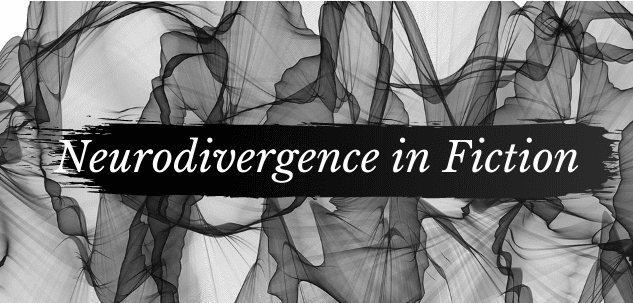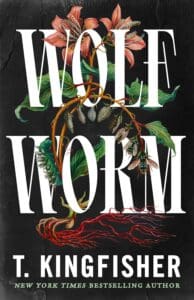
Hello all, and welcome to this week’s article for FanFiAddict’s series on Neurodivergence in Fiction. I cannot understate how appreciative I am for the overwhelming amount of support and enthusiasm I have seen for this series of mine; thank you! For the next several months we will be bringing you a guest post every Wednesday from a neurodivergent author. This will hopefully highlight some of the challenges that come with writing for a largely neurotypical audience, while also giving valuable insight to the craft itself and providing a window into the neurodivergent experience — at least through the lens of fiction.
(Note: I have opened up the series to non-authors and those with other mental health issues.)
This week, we are joined by our first blogger, Jodie from Witty and Sarcastic Bookclub blog!
As always, if you need to catch up on any articles, check out the landing page for the series here.
And, without further ado, here’s the article.
Well, this is a new experience for me. I’ve been reading and appreciating this series on Neurodivergence. Neurodivergence is one of those words that I always wonder about. Do I fit? As someone with Bipolar Type One (what I’ve heard people refer to as “the worst kind”, which is about ten types of incorrect), I see things differently than your typical “normal person”.
I was diagnosed with bipolar disorder about twenty years ago now. The crib notes explanation of bipolar is this: imagine a line. This is where your “normal range” for emotions would be. The baseline, if you will. There may be dips and rises- a promotion might cause a slight upward spike, and bad news would cause a downward one. With bipolar, it becomes much more extreme. There are huge highs, and devastating lows. They aren’t the result of anything, they just are. I could get into the nitty gritty of it and talk about how good mania feels right before it slips into terrifying, or how hard it is to keep going when the depression hits, but it’s one of those things that is difficult to explain properly. It does, however, change how I function.
I am dependent on medication. I take a lovely little pill to keep my mood “stabilized”. Of course, my baseline is naturally lower, so that runs the risk of depression hitting hard. Thus the need for another pill, this one to help soften the blow. I loathe medication, but I also appreciate it. I don’t really think anyone likes needing medication to function. And there’s always that risk that I’ll slip into the beginning of mania and decide to stop taking it. Mania feels great when it starts. The colors are sharper, I don’t need to sleep, I’m much more charismatic (or at least I’m outgoing), and I have a confidence that is not a normal part of my personality. I have to remind myself of what can come next if I stop taking my medication. That dizzying mania that’s dangerous and terrifying. It exists after the pleasant buzz of early mania (hypomania) and comes right before the plummet into severe depression.
Do you want to know what helps? Books. Back when I didn’t have a name for this, when I only knew that I sometimes was at war with myself, books offered a way to cope. They took me to different places and let me think about problems that were solved, defeated, overcome. After learning the name for what I had been dealing with my entire life, I started noticing that every now and again I’d find a character that seemed to struggle with the same things. Sturm in the Dragonlance Chronicles felt like he was slogging through his own darkness. Charlie from The Perks of Being a Wallflower had extreme highs and lows. Actually, I have a quote from this book tattooed on my shoulder, it describes bipolar so well: “So, this is my life. And I want you to know that I am both happy and sad, and I’m still trying to figure out how that could be”. The first time I read An Unquiet Mind by Kay Redfield Jamison, I was floored. This autobiography felt so familiar to how I am. I remember being absolutely stunned by the knowledge that someone else truly understood. Books like that are so important.
Now, please don’t misunderstand what I’m saying. I don’t feel sorry for myself at all, and I really don’t want pity. I’ve only recently started being open about my bipolar after finally realizing that it’s not a secret shame. I didn’t ask for it, and I certainly don’t love it (although I do wonder sometimes who I would even be without depression looking over my shoulder), but I didn’t do anything wrong. I just deal with things a little differently. I have safeguards in place to make sure I don’t spend money I don’t have if I suddenly become manic. I take my medication. I have people around me who know me well enough to notice when I’m having a harder time. The reason I am being more open about it is certainly not for pity or attention. It’s because it would have meant the world to me when I was younger that I wasn’t the only one going through the nightmare of diagnosis and treatment. Having people who really understand is huge. I don’t see too many books where neurodivergence is really expressed correctly, although they are popping up more and more often. I can always tell when an author has firsthand knowledge versus when they are trying to accurately represent something they might not fully understand, and I respect the bravery it takes to bare a part of yourself in writing. One of the many great things about books is their ability to show us what life looks like for someone else. A person might not experience depression (something I would never wish on anyone), but they can see how it looks to someone else. Maybe the idea of mania is foreign to someone, but they can read about how it feels. ASD, for example, is something that I have not experienced, but articles such as the ones in this series can give me a little more knowledge. I say this on a pretty regular basis, but that doesn’t make it any less true: words have power. They can entertain, they can teach. They can remind us that we aren’t alone, that someone understands. I think that’s something special.
About the Author

Jodie Crump is the creator of the Witty and Sarcastic Bookclub blog. She either lives in Florida with her husband and sons, or in a fantasy book-she’ll never tell which. When she’s not reading, Jodie balances her time between homeschooling her hooligans, playing Dungeons and Dragons, and lamenting her inability to pronounce “lozenge”.
Find her online at www.wittyandsarcasticbookclub.home.blog or https://www.twitter.com/WS_BOOKCLUB.



[…] Finally, a post from Jodie of Witty and Sarcastic Bookclub talking about being Bipolar and how books helped. […]